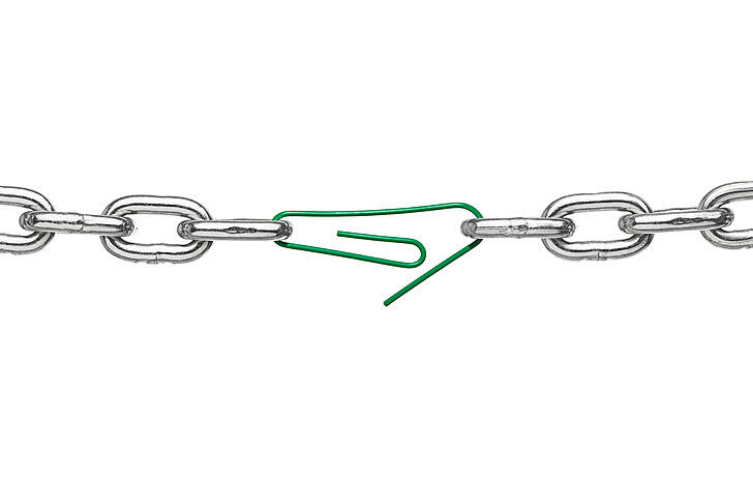Last year I had the pleasure of seeing Malcolm Gladwell speak at a conference in Melbourne. If you have never heard of Malcolm Gladwell, then you should go look him up now. If you have never read any of his books, then you should buy every single one of them now. As you can tell, I’m a fan!
He uses sports – specifically basketball and football (soccer) – to illustrate why some organisations perform well and others do not.
Strong vs Weak Link
According to Gladwell, there are strong link sports and weak link sports. Basketball is a strong link sport because often the result is decided by the strongest player on the court, who can dominate a game and win it for their team.
By contrast, football (Soccer) is a weak link sport. It’s usually the 8th, 9th, 10th or 11th best players on the team who determine the result. The weakest players need to be stronger than the opposing team’s weakest players.
“Soccer is a game of mistakes,” Gladwell told the audience, “If you replace your worst player with a better player, you’ll minimise your mistakes. If one person makes a mistake, the whole sequence evaporates.” The best way for a soccer team to improve then, he says, is to “spend more on pretty good players instead of less on one excellent player.”
The opposite is true in basketball. “If you want to make a basketball team better, your best strategy is to replace your best player with someone even better,” Gladwell said. Since the game does not depend on the number of mistakes made in order to get a decent score, “it is a strong link game.”
This strong/weak link theory made me think of our work in organisational change. Is Change a strong or weak link?
The answer is that it is a weak link. However, many organisations adopt a strong link strategy.
Typically, an organisation will assign dedicated change resources (star player/s) to large strategic projects and expect that alone will result in a positive outcome. As good as these change superstars may be, they can’t compensate for poor change systems, processes and infrastructure, nor the absence of or ineffectiveness of the many other key players required in change.
Result: executives become increasingly frustrated with the organisational inertia inhibiting their ability to implement change quickly, efficiently and effectively.
Our research into the characteristics of truly change capable organisations supports the view that Change is a weak link game. Not a weak game – a weak link game. It requires many people to play their part in the change equation.
How do I win a weak link game?
A path forward is to strengthen the weakest links in your organisation’s change capability which equates to playing a game of soccer over a game of basketball.
Do you know where your organisations weakest links are?
To learn more about how our change capability diagnostic can help identify your strengths and your weakest links, please click on the link below or contact us directly.




